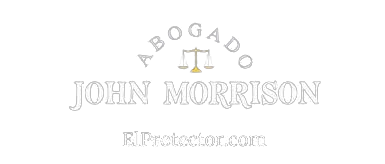The Legal Process for Catastrophic Injury Claims: Seeking Fair Compensation for Long-Term Effects
In pursuing justice, one of the fundamental principles of any legal system is the concept of fairness. Regarding catastrophic injury claims, seeking fair compensation for plaintiffs’ long-term effects becomes imperative. Such injuries can be life-altering, resulting in significant physical, emotional, and financial burdens on the victims and their families. The legal process surrounding these claims is crucial in ensuring fairness is determined and defended.
Properly assessing the plaintiff’s injury is essential to establish a foundation of fairness. Each case is unique, and understanding the full extent of the physical, emotional, and financial ramifications is vital to determine fair compensation. This assessment involves a comprehensive examination of the medical records, expert opinions, and testimonies from various professionals interested in the plaintiff’s care and rehabilitation.
By piecing together this intricate puzzle, legal professionals can better comprehend the true impact of the catastrophic injury and its long-term consequences.
In this article, we will delve into the legal process surrounding catastrophic injury claims, exploring the crucial steps taken to ensure fairness in determining compensation for the long-term effects suffered by the plaintiffs.
What is Catastrophic Injury?
Catastrophic injuries are severe, life-altering injuries that often result in permanent disability or impairment. These injuries have profound physical, emotional, and financial consequences for the victims and their families. Examples of catastrophic injuries include spinal cord injuries, traumatic brain injuries, severe burns, multiple fractures, and amputations.
What is the legal process for a Catastrophic Injury Claim?
The legal process for a catastrophic injury claim involves several vital steps to seek fair compensation for the long-term effects suffered by the plaintiff. Here is a general overview of the process:
- Consultation with an Attorney: The first step is to consult with an experienced personal injury attorney specializing in catastrophic injury cases. They will assess the details of the incident, gather relevant evidence, and determine the claim’s viability.
- Investigation and Evidence Collection: Thorough investigation is crucial in building a solid case; this includes gathering medical records, accident reports, witness statements, expert opinions, and other evidence necessary to establish liability and the extent of the plaintiff’s injuries.
- Determining Liability: The legal team will identify the responsible parties and establish their liability for the catastrophic injury; this may involve proving negligence, product liability, premises liability, or other legal theories depending on the circumstances of the case.
- Calculating Damages: Assessing the full extent of the damages is a critical aspect of the legal process; this includes evaluating medical expenses, ongoing rehabilitation costs, lost wages, loss of earning capacity, pain and suffering, and other factors relevant to the plaintiff’s long-term effects.
- Negotiations and Settlement: In many cases, the parties involved may engage in settlement negotiations to avoid a lengthy trial. Attorneys will advocate on behalf of the plaintiff to secure a fair settlement that adequately compensates them for their injuries and future needs.
- The trial, if Necessary: If the involved parties cannot reach a fair settlement, the case may proceed to trial. Both sides will present their arguments, evidence, and witness testimonies before a judge and jury, who will ultimately determine liability and the appropriate compensation.
What are some common misconceptions to avoid when filling out a Catastrophic Injury Claim?
When filling out a catastrophic injury claim, avoiding common misconceptions that may adversely impact the case outcome is crucial. Some misconceptions to be aware of include:
- Underestimating the Long-Term Effects: It is essential to provide a comprehensive account of the long-term effects of the injury, including physical, emotional, and financial implications. Please document all relevant aspects to ensure adequate compensation.
- Accepting Early Settlement Offers: Insurance companies or opposing parties may attempt to offer early settlement amounts that must adequately cover the full extent of the damages. It is essential to consult with an attorney before accepting any settlement offer.
- Overlooking Future Expenses: Catastrophic injuries often require ongoing medical treatment, rehabilitation, and long-term care. Failing to account for these future expenses can result in insufficient compensation.
- Not Seeking Professional Legal Guidance: Catastrophic injury claims are complex, and navigating the legal process without professional guidance can be challenging. Consulting an experienced attorney specializing in catastrophic injury cases is crucial to ensure the best possible outcome.
Seeking fair compensation for catastrophic injuries is an integral part of the legal process, ensuring that victims receive the support they need to rebuild their lives. By clearly understanding fatal injuries, familiarizing themselves with the steps involved in the legal process, and avoiding common misconceptions, plaintiffs can confidently navigate the complexities of their claims.
At John Morrison Law, we are committed to helping individuals with catastrophic injuries obtain the justice and fair compensation they deserve. Our experienced team is dedicated to guiding clients through every stage of the legal process, advocating for their rights, and maximizing their chances of receiving appropriate compensation.
Together, we can work towards alleviating the physical, emotional, and financial burdens of catastrophic injury victims, empowering them to move forward and rebuild their lives with the support they need.
